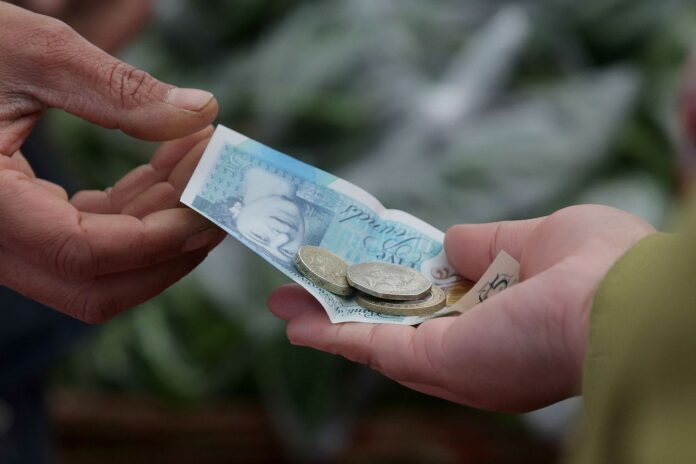Consumer prices rose at the fastest annual pace in nearly 30 years last month,as the annual rate of consumer price inflation rose to 5.5% in January, the highest since March 1992,
A record 6.3% annual rise in the prices for clothing and footwear added 0.2 percentage points to the CPI rate, while food and drink prices increased by 4.3%, the most since April 2013.
Petrol prices were lower than December, but are still 23.6% higher than a year earlier, while the cost of second-hand cars was 28.7% higher.
Core inflation, which excludes sometimes volatile prices for energy, food, alcohol and tobacco, rose to 4.4% in January from 4.2% in December, its highest since these records began in 1997.
Retail price inflation – a longer-running series which the ONS says is no longer accurate, but which is used in commercial contracts and to set interest payments for some government bonds – was the highest since March 1991 at 7.8% in January.
There were signs of further inflation pressure ahead as manufacturers increased prices by 9.9%, the biggest annual jump since September 2008 and above all forecasts in a Reuters poll.
But the surge in manufacturers’ raw material costs slowed slightly, rising by 13.6% which was down from 13.8% in December and a peak of more than 15% in November.
Rebecca McDonald, Senior Economist for the independent Joseph Rowntree Foundation said:
“Today’s figures confirm we are on the brink of colliding with the 7% inflation rate forecast for April by the Bank of England. Millions of low income families will rightly worry this further drives up their living costs and drags down their living standards.
“Key drivers of this latest rate of 5.5% are transport and energy prices, reflecting the situation still months ahead from levels we expect to see come April when the new energy price cap comes into effect. But the poorly targeted method chosen by the Chancellor for his recent support package fell short of delivering what low income families will need to afford the essentials. This risks creating a ‘debt now, more debt later’ approach for the families already struggling the most.
“At the same time inflation hits this 30 year high, out of work support is at a real-term 30 year low and come April all benefits will be uprated by only 3.1%, covering less than half of expected inflation. It’s not right that this disparity will leave families on the lowest incomes grappling with impossible choices – the Government must act urgently to strengthen our increasingly inadequate social security system.”
Alpesh Paleja, CBI Lead Economist, said:
“We haven’t seen the end of rising inflation. Prices are set to rise at faster rates in the months ahead as the upcoming increase in Ofgem’s energy price cap compounds existing cost and supply chain pressures. With the resulting squeeze on household budgets expected to weigh on economic growth, it was encouraging to see the Government step in to moderate the impact of energy price rises on the most vulnerable.
“Looking beyond the near-term, it’s clear that the UK is caught in a low growth trap, and the only way to get out is a relentless focus on productivity. Measures like a 100% permanent investment deduction and a future-focused approach to regulation and skills are vital to help us avoid another lost decade of growth.
“Enhancing the economy’s growth potential is the only way to withstand future inflationary shocks and deliver a sustained boost to living standards.”







